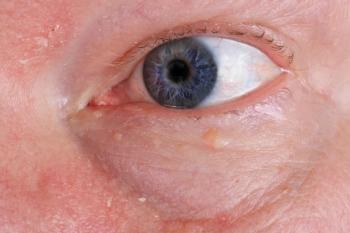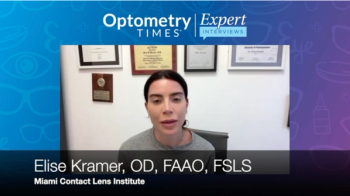
5 tips for planning a successful event at your practice
Promotional events are designed to create some sort of focused attention on you and your practice. There are a wide variety of events that can help solidify the brand you are building for your practice.
Nothing is better to showcase the quality eyewear that your practice provides than a well-done trunk show. Trunk shows are designed to bring attention to your optical and create a buzz around a particular designer or frame line. The hope is that the event will generate more business for all aspects of your optical. Good trunk shows are well attended, fun, and generate a high number of sales.
However, events that promote the practice don’t have to be limited to trunk shows. Promotional events are designed to create some sort of focused attention on you and your practice. There are a wide variety of events that can help solidify the brand you are building for your practice.
More from Dr. Rothschild:
New types of specialty lenses, like the Zeiss DriveSafe or Crizal, can be the focus of a safe driving event or car show. Many lens manufacturers specifically designed for computer or digital device use. Consider hosting an event in partnership with an electronics vendor to try some of the latest computer technology, showcasing the new lenses. Practices focusing on heath and wellness can host a symposium on diabetes or hypertension.
The 5 Ps of eyecare events
While there is no limit to the types of events we can have in our practice, there are a few things that all successful events will have in common.
1. Purpose.
First, answer why you want to have an event. Typically, promotional events are held to create more business opportunities. Decide what portion of your business you want to build. If you want to create more contact lens fits, an event featuring a newly-released lens may be a good idea. If your goal is to energize the medical portion of the practice, a health symposium centered on a new piece of diagnostic equipment will often do the trick.
2. Planning.
It should go without saying, but planning of an event is often overlooked. The best events involve the entire team, including the planning phases.
Answer all of the standard questions:
• Who? Is this an event for your fellow healthcare providers or geared more toward your patients? Which segment of that group will be targeted?
• What? Will this be a 3D movie with some information about eye strain or a hot dog cookout celebrating the end of the school year?
• Where? Many events are held in the practice, but off-site events also make for great venues. How many people are you expecting (see: Who?)? Do you have room for them, and will parking be a concern?
• When? Will the event be held during normal business hours, after hours, or on the weekend? What are the advantages of each? Is the event related to a particular season or awareness month?
• How? This is the big one.
More practice management:
When informing the team, don’t forget to share the purpose and solicit input from everyone. Schedule the event with enough lead time to allow sufficient communication of the plan. The more decisions that are made prior to the event, the better. (Note that “procrastination” is not one of the Ps.)
3. People.
Events do not run themselves. Staff usually needs to be involved, and that means added responsibilities for everyone. Many events involve outside vendors, like caterers, entertainers, or product representatives. It is important to keep a list of all the people involved so they can be kept up to date with the evolving plan. Professional event companies can take care of these details for you.
More practice management:
4. Promotion.
An event is effective only if your community knows about it. Like any campaign, the awareness of an event needs to gain momentum up until the event itself. With social media, the goal is to create a “following” of the event. An inventive hashtag, like #BigEyeEvent, can create its own web of conversation. The promotion should be adjusted for the target audience. An ad in the local newspaper may be just what you need for a macular degeneration symposium but will miss if the focus is on the new color contact lenses.
5. Putting it on.
When the time comes for the event, it will happen-ready or not. No matter how detailed the plan, some adjustments will have to be made on the fly. Once the time comes, it is important that the attendees are having a good time. Your stress will show and detract from the event’s purpose. Remember to have fun.
Bonus “P”-(Ph)ollow up.
Event follow-up is a critical piece. Offer some sort of takeaway in the form of a goody bag with information about your practice. It should be very clear for the event attendees to know where to go for more. You should plan to contact your guests with a follow-up message or question. They should be encouraged to share their experience with others. The benefit of the event is not limited to the people present.
Newsletter
Want more insights like this? Subscribe to Optometry Times and get clinical pearls and practice tips delivered straight to your inbox.













































